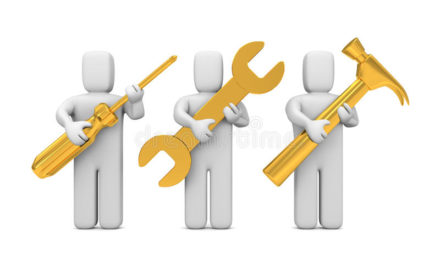Informational interviewing can play a pivotal role in building one’s network to assist in penetrating the hidden job market and unadvertised job prospects, but unfortunately is often a tool ignored in a job seeker’s career and job search campaign.
Informational interviewing is a ‘fact-finding exploration’ that will assist a job seeker in identifying an optimal place of work that is conducive to their skills, motivation and talent, thus positioning them for continued growth and fulfilment within their careers.
Conducting informational interviews will allow a job seeker to pinpoint their strengths and requirements for further development, while also providing an opportunity to build their confidence and communication skills, both crucial for future job interviews.
Neglecting to implement this critical research and screening tool within their job search sadly can lead to a job seeker discovering their discontentment after they have accepted a job offer, or worse, are working within the role.
Therefore, if a particular role or industry is of interest to you, go and check it out first by meeting with the people who are already performing in these roles to establish whether or not this career path not only interests but suits you.
Benefits of Informational Interviewing:
It is important not to confuse informational interviewing with a job interview. You are not interviewing for a role, nor should you ever, under any circumstances, ask for a job.
By conducting an informational interview, you should:
Gain a deeper understanding of the job specifications (beyond the job title).
Enhance your awareness of the company’s culture and how you may/may not fit into the work environment.
Expand your network of contacts within the industry thus optimizing your targeting ‘the hidden job market’.
Strengthen your understanding of the company’s structure and possible needs so that in the future, should an employment opportunity present itself, you can better position yourself as a top candidate.
Network with professionals in a relatively low-stress setting to assist you in building your self-confidence while gaining crucial information you can harness during your job search campaign.
Screen the organization to help you in your decision-making process, should you be extended an opportunity for employment in the future.
Getting Started:
Begin by developing a list of people you would be interested in meeting. These may include people already in your network of contacts or even a company you would consider working at, which is an excellent opportunity to expand your network of contacts. So don’t be afraid to touch base with people you don’t know.
While in-person meetings are ideal, conducting informational interviews over the phone can be just as beneficial in your research. Hectic schedules govern many people, so a 10-15 minute phone call may not seem as potentially disruptive as a face-to-face meeting.
Acquiring an Appointment:
Contact the person with whom you wish to meet either by letter or telephone. Introduce yourself and explain the reason for your contact. Remember to mention the person’s name that referred you at the beginning of the call.
Use the following script as a guideline:
” Hello, my name is I’m currently exploring career options in the industry and was given your details by for the possibility of obtaining further information about this field and how you got started in the industry. I ‘d love to be able to meet with you briefly and will only take about 10-15 minutes of your time.”.
Should they respond with apprehension or the comment “Is it possible to do this by phone?” you may like to respond with “Certainly– although it would be an honour to meet with you.”
Remember, avoid being pushy– a telephone meeting will also allow you to gather pertinent information.
The Informational Interview Meeting;
Just as if you were attending a job interview, your appearance/attire and your approach should be professional throughout the entire meeting.
Ensure you are well prepared to bring with you your questions, a pen and notebook to jot down the information offered.
Possible Research Questions:
What background do you believe is necessary for people working in this field?
Could you outline current issues and trends associated with this industry?
Can you describe what you believe a typical working environment is like for this industry?
Describe what a typical working day involves for you.
Could you list some of the crucial skills required for this role/industry?
What would you say would be the top 5 aspects of your role?
What would be the least desirable areas about your role?
What advice would you give someone looking to enter this industry/role?
Could you recommend any industry publications or articles where I could gather further information?
Are you able to provide the names of people I could talk to regarding the industry?
Would you mind if I used your name as a referral?
You may consider bringing a copy of your resume and request the person to review it at a later stage to provide feedback on its content and format, which will give you another perfect opportunity to touch base with them.
Leave your business card and request a business card from the person you are meeting.
Final thoughts:
Remember, be respectful of the person’s time and stay within your allocated time guidelines. Do not ask for a job, nor be too aggressive in your questioning/approach.
Thank You’s:
Following the (in-person/telephone) meeting, send a thank you letter, expressing your gratitude for their time and valuable information he/she shared.
Continued success!
© Wordscapes® (David Turner). All Rights Reserved.




